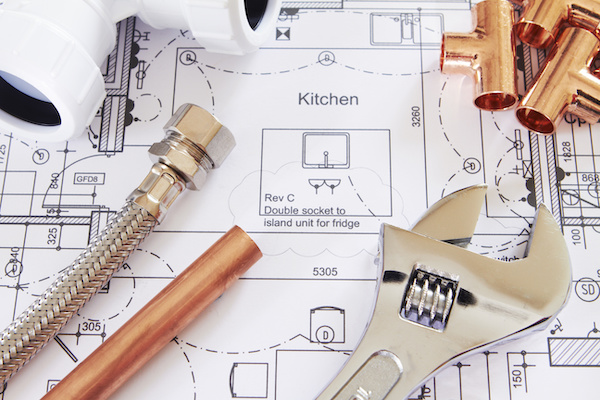When it comes to home improvements, homeowners often have increasing the property’s value in mind. But before they start knocking down walls or changing the plumbing, they turn to tradespeople who can give advice and also work on home improvement projects. That’s where you come in.

Being updated on the latest home improvement projects provides a competitive advantage to any tradesperson. Homeowners want trade professionals who are familiar with the latest trends in home improvement and who have the skills to work on them. To get you started, here are the top home improvement projects that increase a property’s value.
1. Urgent repair inspection
Not all home improvement projects involve a complete overhaul of one area of the home. Some homes may just need a quick inspection. There are areas in the home that are seldom seen by homeowners but can hide problems that can negatively impact the value of a home. These problems are usually discovered during an appraisal and can significantly reduce the price that sellers will receive. The longer homeowners put off these urgent repairs, the more expensive the cost of repair will be.
These problems can be easily noticed by a tradesperson’s trained eye. A tradesperson will be able to pinpoint the signs of a termite infestation, outdated plumbing or electrical system, or deteriorating walls and roofs.
2. Interior and exterior paint job
When done correctly, a fresh coat of paint for the house is one of the most cost-effective home improvement projects. Since paint is relatively inexpensive, having a newly painted home gives a significant return on investment.
There are several areas that benefit from a new coat of paint. The front door and exterior walls are some of the first things a potential buyer sees and a new paint job can boost a home’s curb appeal. Kitchen cupboards and cabinets may look a little dated and could use a new color. Painting the house trims may not require much effort, but the right color can accentuate the whole home.
3. Updated plumbing system
Plumbing is the lifeblood of a home and thus, the value of a home can increase significantly with an updated plumbing system.
There are several ways tradespeople can help increase a property’s value with plumbing. Most home improvement projects involve the installation of new bathtubs, toilets and sinks. A new set of plumbing work hand in hand with this improvement. New plumbing that includes a water conservation feature is a huge plus for potential buyers.
Another way to improve the home’s value is through a drain replacement. A lot of things get stuck in the drain, including hair, food debris, and grime from dirty plates. A proactive repair and replacement of drains will translate to more comfortable living and increase in home value.
Finally, tradespeople may suggest the installation of an efficient water heater. No one wants to be stuck without hot water to warm up. Thus, it is vital to all homes that a water heater be installed or an old one updated.
4. Updated electrical system
Modern lifestyle demands an up-to-date electrical system. No potential home buyer would want to live in a home with not enough sockets for gadgets and appliances. If the electrical system is lacking, the buyer’s agent may negotiate a lower price or, worse, they may not take the home into consideration.
Some of the most common electrical updates include a fuse box or breaker panel replacement. Older homes may not be able to handle current technology’s electricity needs and may overheat easily and potentially cause a fire. Installing more power outlets is another option. To add value, tradespeople may suggest the addition of childproof power outlets that are appealing to families with children.
Most of these home improvement projects won’t break the bank, but a tradesperson’s experience and expertise can go a long way in increasing a home’s value. Be updated with the latest trends in home improvement to become a valuable asset to current and future clients.
 Chris Woodard is the co-founder of Handle, a software company that helps contractors, subcontractors and materials suppliers secure their lien rights and get paid faster by automating the collection process of unpaid construction invoices.
Chris Woodard is the co-founder of Handle, a software company that helps contractors, subcontractors and materials suppliers secure their lien rights and get paid faster by automating the collection process of unpaid construction invoices.



